Are You Caring for Someone with Dementia? Here’s How to Navigate the Journey with Confidence

Caring for a loved one living with dementia can be one of the most rewarding and emotional experiences. Yet it also comes with unexpected challenges many families face. How can you support someone’s independence while safeguarding their wellbeing? What help is available in Bedford? And most importantly, how can you look after your own health as a carer?
As Dementia Action Week (19–25 May 2025) reminds us, raising awareness and offering practical advice is vital. At Home Instead Bedford, we believe that families deserve compassionate guidance and professional support at every step of their journey.
Whether you are new to caregiving or seeking to strengthen your knowledge, this article shares practical tips, emotional support strategies, and local resources available right here in Bedford.
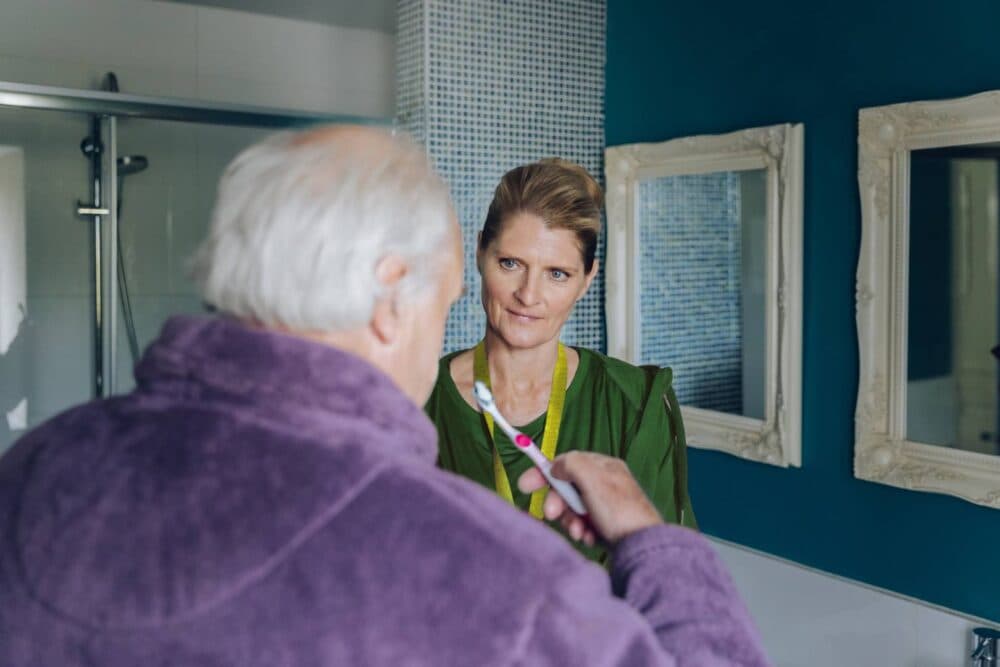
Dementia Action Week 2025: Supporting Our Community
At Home Instead Bedford, we’re proud to be part of Dementia Action Week (19–25 May 2025)—a national campaign to raise awareness and support for people living with dementia and those who care for them.
To mark the week, we’re hosting a series of local initiatives aimed at supporting families, sharing advice, and strengthening our dementia-friendly community.
Whether you’re caring for a family member, seeking guidance, or just starting to explore dementia care options, we’re here to help. Please contact our team to find out more.

Recognising Yourself as a Carer: Why It Matters
Many people supporting a loved one with dementia do not initially view themselves as carers. Yet recognising this role is important because it opens the door to valuable support services, including:
- Carer’s assessments.
- Financial aid.
- Respite care options.
- Access to local support networks like the Alzheimer’s Society.
Registering with your GP as a carer is an essential first step. It ensures you receive health advice tailored to your circumstances and connects you with services designed to help you thrive alongside your loved one.
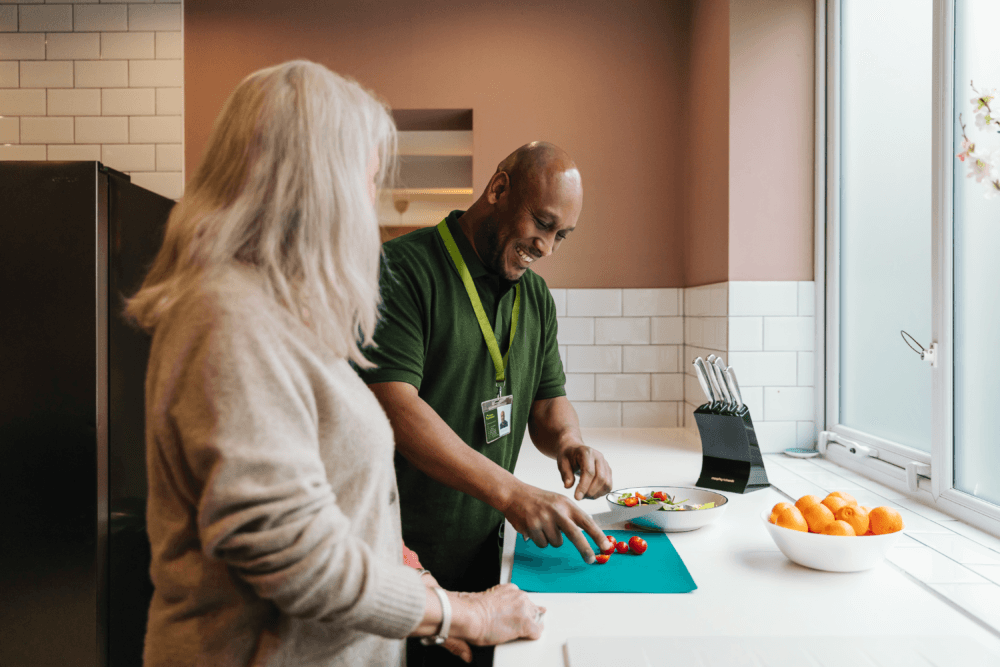
Supporting Independence at Home
Maintaining independence for as long as possible is a key part of living well with dementia. Small changes can make daily life safer and more reassuring:
- Create a predictable daily routine to provide a sense of security.
- Use memory aids like notebooks, whiteboards, or large calendars.
- Simplify dressing with easy-to-manage clothing.
- Install aids such as shower chairs, raised toilet seats, and handrails.
- Involve your loved one in everyday activities to nurture self-esteem.
By making these small adjustments, you can protect your loved one’s dignity while reducing their reliance on constant supervision.

Communicating with Compassion
As dementia progresses, communication may become more difficult, but connection remains vital. You can help by:
- Speaking slowly and clearly with short, simple sentences.
- Allowing extra time for responses without rushing.
- Using warm body language and maintaining eye contact.
- Reducing background noise to make conversations easier.
- Sharing familiar objects, photos, or music to stimulate memories.
Non-verbal communication, like touch and facial expressions, remains powerful even when verbal skills decline. A smile or gentle handhold can mean more than words.
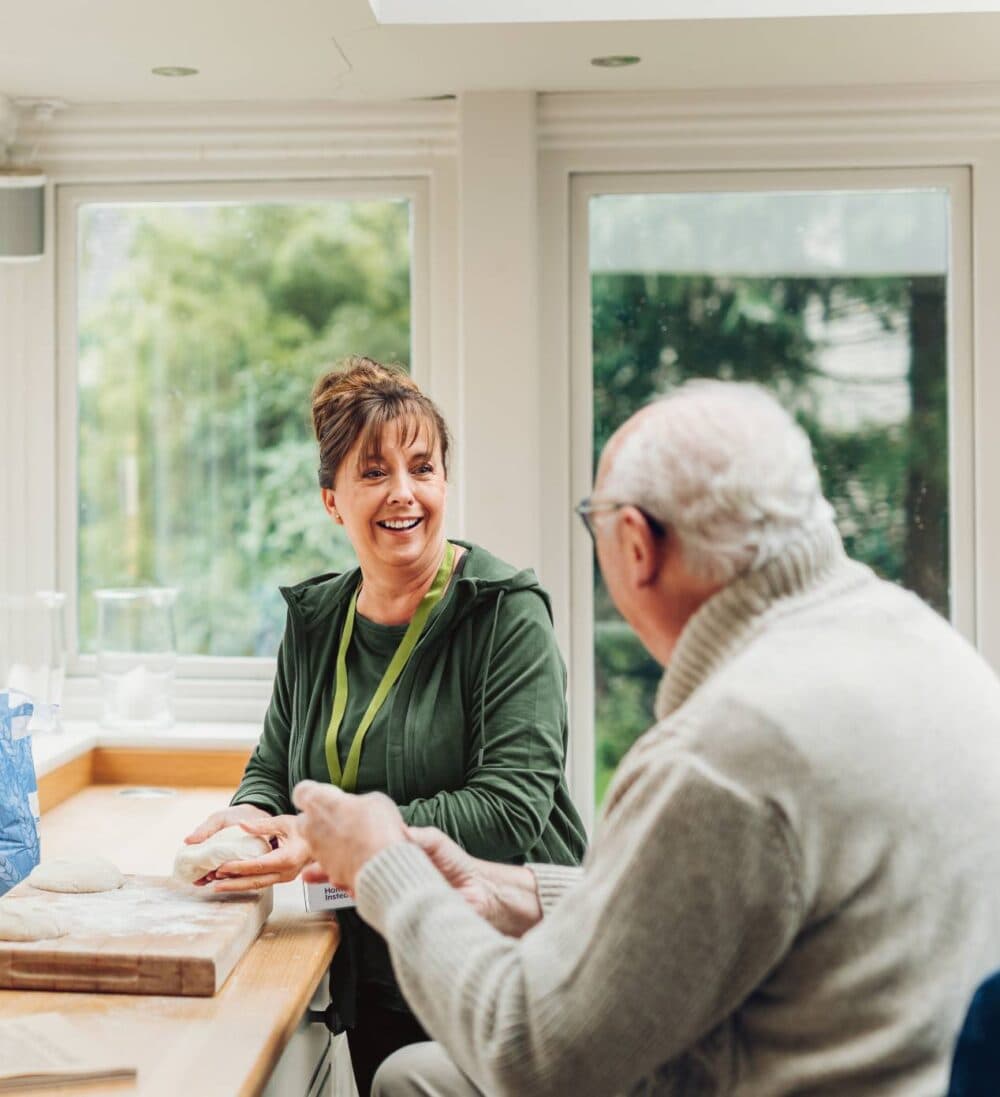
Encouraging a Healthy Lifestyle
Maintaining physical health can positively impact emotional wellbeing. Encouraging gentle activities such as walking, gardening, or movement to music can offer great benefits. Focus on:
- Hydration, with accessible drinks available throughout the day.
- Nutritious meals served in small, manageable portions.
- Shared mealtimes to promote social connection and appetite.
A simple, healthy lifestyle can help preserve cognitive function and improve mood.
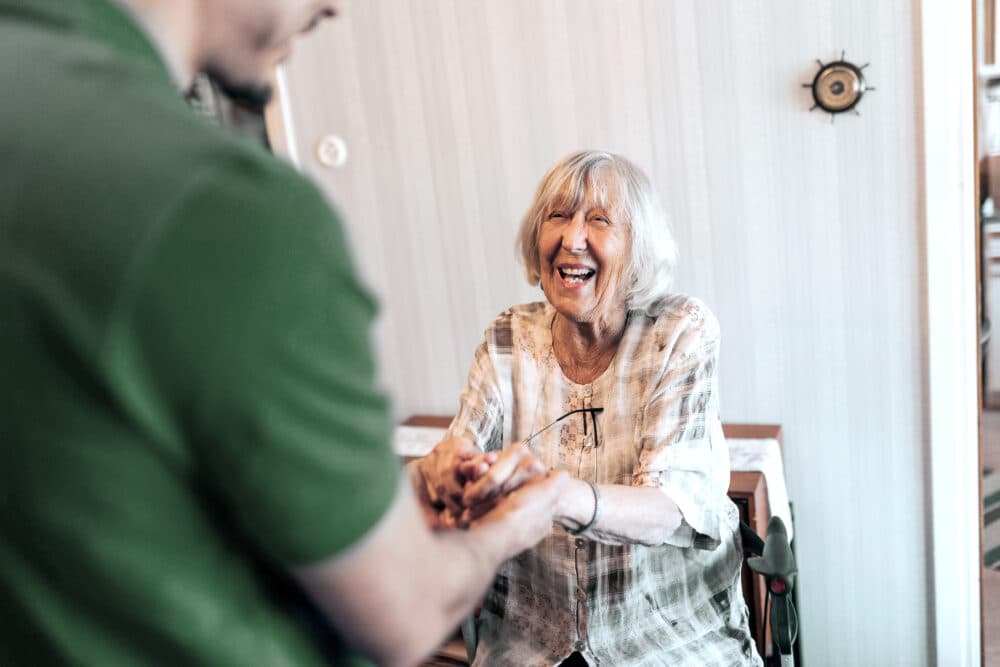
Creating a Safer Home Environment
Adapting the home can help minimise risk while allowing greater freedom:
- Install handrails along stairs and in bathrooms.
- Remove trip hazards such as loose rugs or trailing wires.
- Improve lighting, especially in hallways and stairwells.
- Simplify décor to reduce visual confusion.
- Store potentially dangerous items, such as cleaning products, securely.
By making safety adjustments, you help create an environment where your loved one can continue living as independently as possible.

Supporting Emotional Wellbeing and Identity
Dementia does not erase a person’s individuality. Supporting emotional wellbeing involves:
- Celebrating achievements and interests.
- Using memory books or “This is Me” booklets.
- Encouraging participation in hobbies and social groups.
- Respecting choices around clothing, food, and activities.
Protecting dignity and honouring life history can ease anxiety and promote a stronger sense of self-worth.
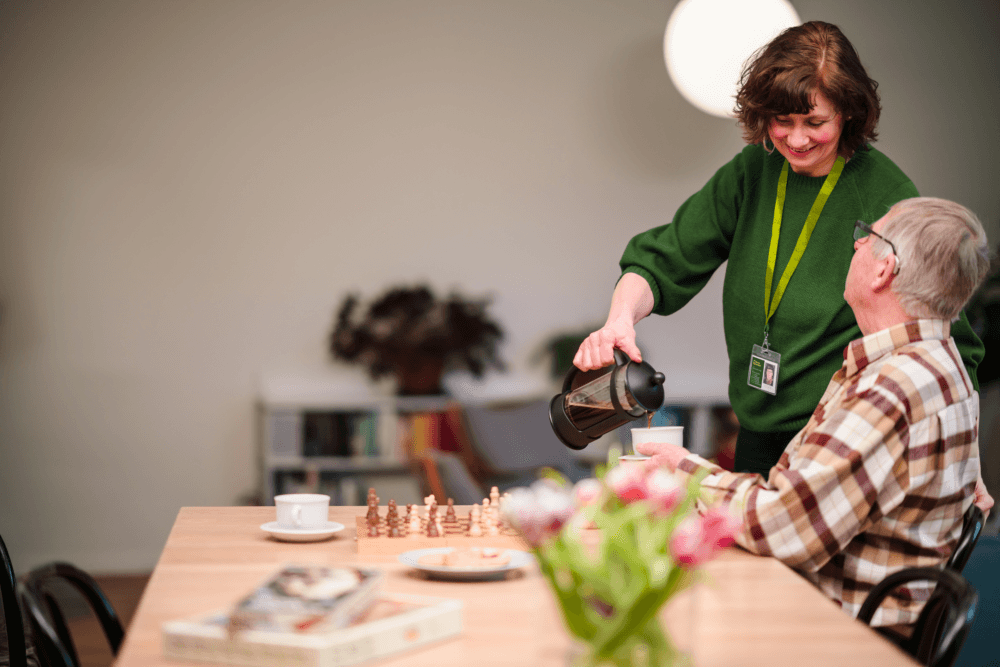
Helping with Eating, Drinking, and Toileting
Practical support with mealtimes and personal care needs is often needed:
- Offer familiar foods and encourage involvement in preparation.
- Serve smaller, manageable meal portions.
- Prompt hydration by keeping water or tea within easy reach.
- Use clear signage to indicate bathrooms.
- Create a consistent toilet routine to prevent confusion.
Specialist advice is available through GPs and continence services to help navigate these sensitive situations with dignity and support.
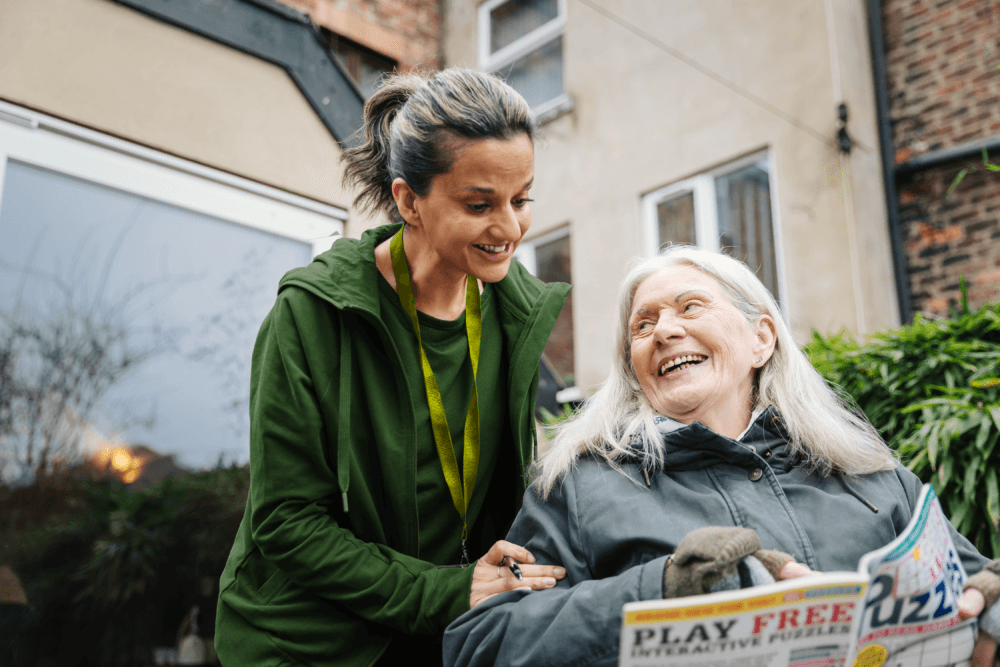
Managing Sleep Difficulties
Sleep disruptions are common but can often be eased by:
- Encouraging exposure to natural light during the day.
- Limiting long daytime naps.
- Creating a calm, familiar bedtime routine.
- Using clearly labelled clocks that show day and night times.
If sleep issues persist, it’s important to seek guidance from healthcare professionals to explore supportive options.

Understanding Behavioural Changes
Behavioural changes are often a response to confusion, discomfort, or unmet needs. They are often a form of communication when words fail. You can help by:
- Identifying potential triggers like pain, fear, or hunger.
- Using familiar routines and reassuring language.
- Offering enjoyable, calming activities.
- Maintaining patience and seeking advice when needed.
Responding with empathy rather than frustration can often prevent escalation and maintain a peaceful environment.
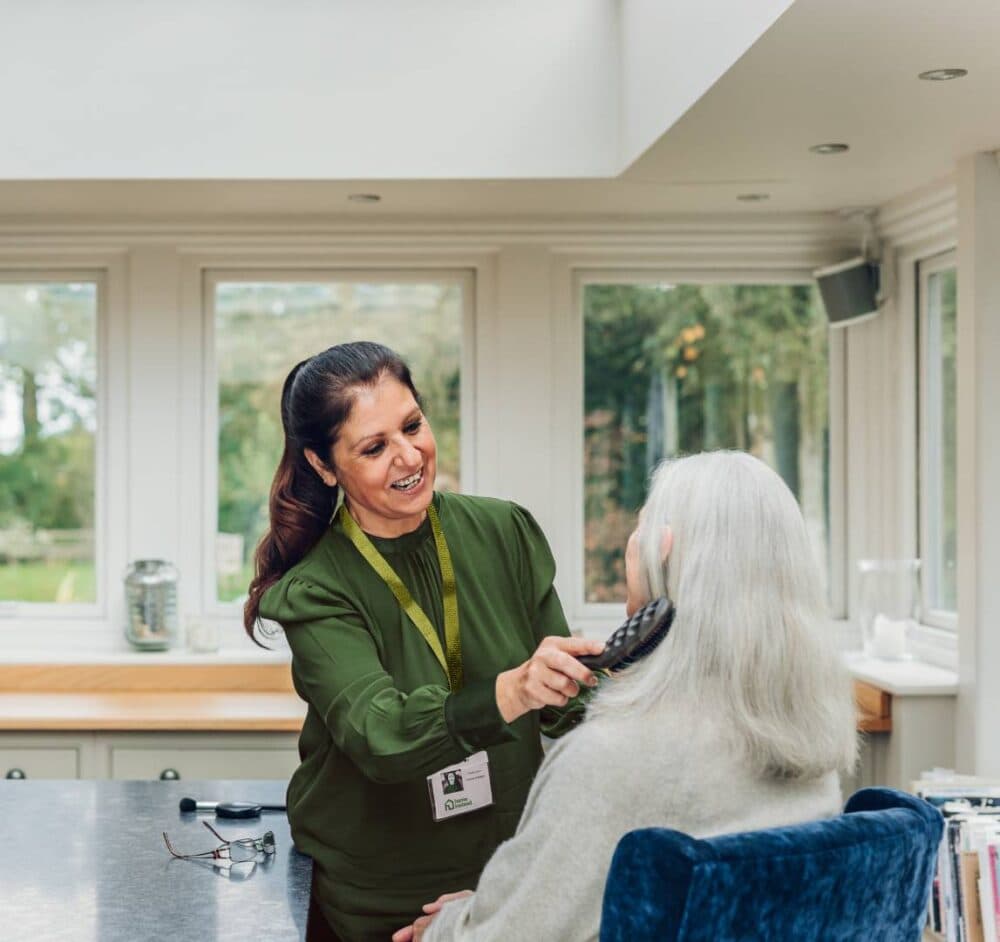
Planning for the Future
Early conversations about future care preferences are important. Topics to discuss include:
- Appointing Lasting Powers of Attorney for health and financial decisions.
- Recording advance care plans.
- Discussing preferred living arrangements.
Starting these conversations early ensures that the individual’s wishes guide future decisions, reducing uncertainty for everyone involved.
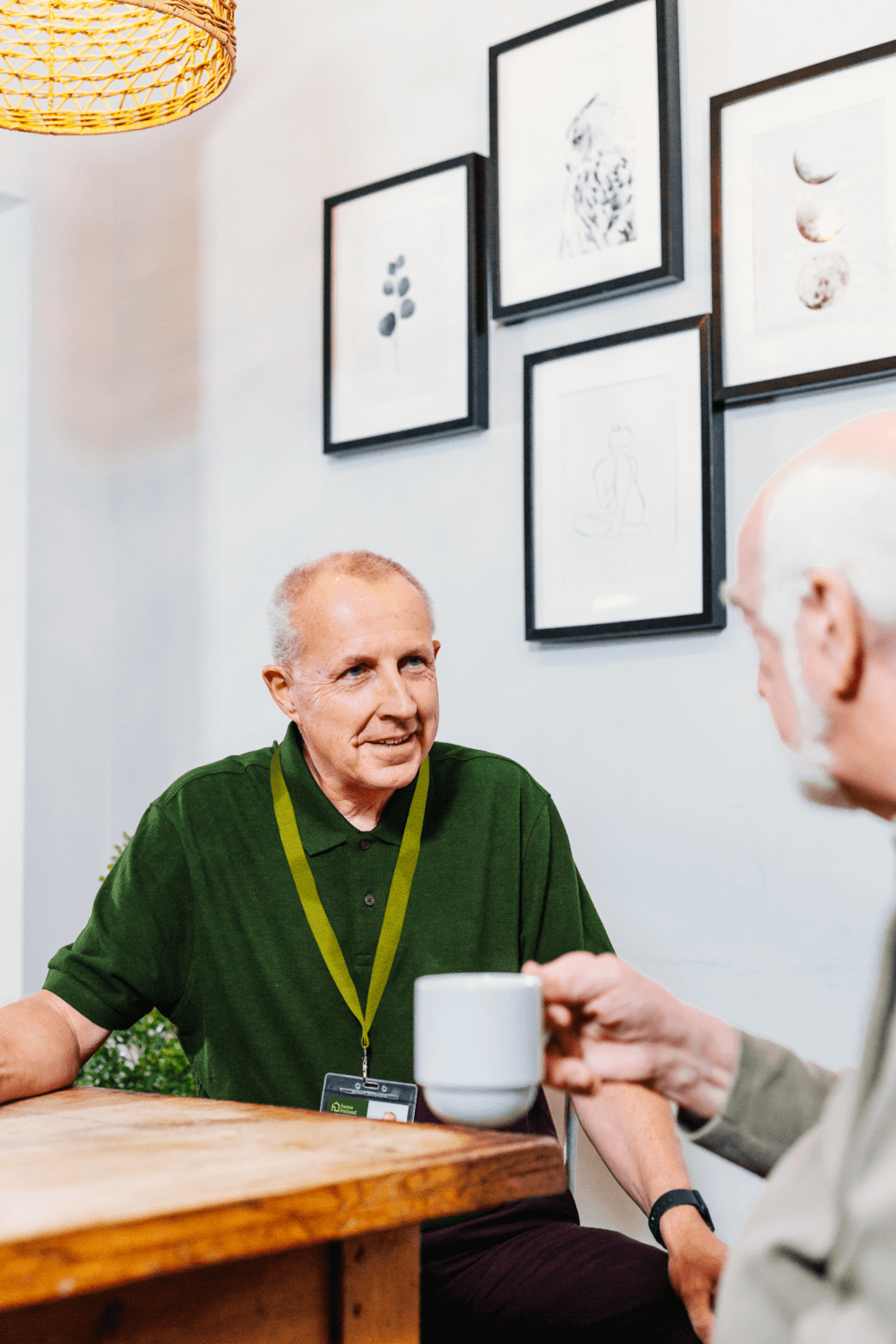
Carer Wellbeing: Why Your Health Matters Too
Caring for someone with dementia is rewarding, but without looking after yourself, it can become overwhelming. Protect your own wellbeing by:
- Accepting offers of help from family and friends.
- Joining support groups such as Carers in Bedfordshire.
- Taking regular breaks using respite care options.
- Maintaining hobbies and social activities outside of your caring role.
- Seeking professional counselling if needed.
Remember: your wellbeing directly impacts your ability to care effectively.

Local Dementia Support Services in Bedford
Families in Bedford have access to trusted organisations offering support, advice, and professional care:
- Home Instead Bedford – Providing personalised, home-based dementia care with a focus on dignity, independence, and continuity of support.
- Alzheimer’s Society
- Age UK Bedfordshire
- Tibbs Dementia Foundation
- Bedfordshire Hospitals NHS Foundation Trust, providing dementia-friendly hospital services.
These groups offer practical help, emotional support, and community connections that can make a significant difference.

Trusted Homecare Services in Bedford
When families need additional support, professional homecare services offer peace of mind.
Home Instead Bedford: Personalised Dementia Care
Home Instead Bedford delivers outstanding dementia care, tailored to each individual’s unique needs and preferences. Services include:
- Personal care support with bathing, dressing, and medication.
- Companionship to combat loneliness and encourage engagement.
- Specialist dementia care plans developed with clinical insight.
- Flexible, home-based support options including live-in care.
With highly trained Care Professionals and a heartfelt commitment to preserving dignity, Home Instead Bedford is proud to support local families.
Contact Home Instead Bedford:
- Phone: 01234 480 300
- Address: Suite 4, First Floor, Linden House, 5 Linden Road, Bedford, MK40 2DD
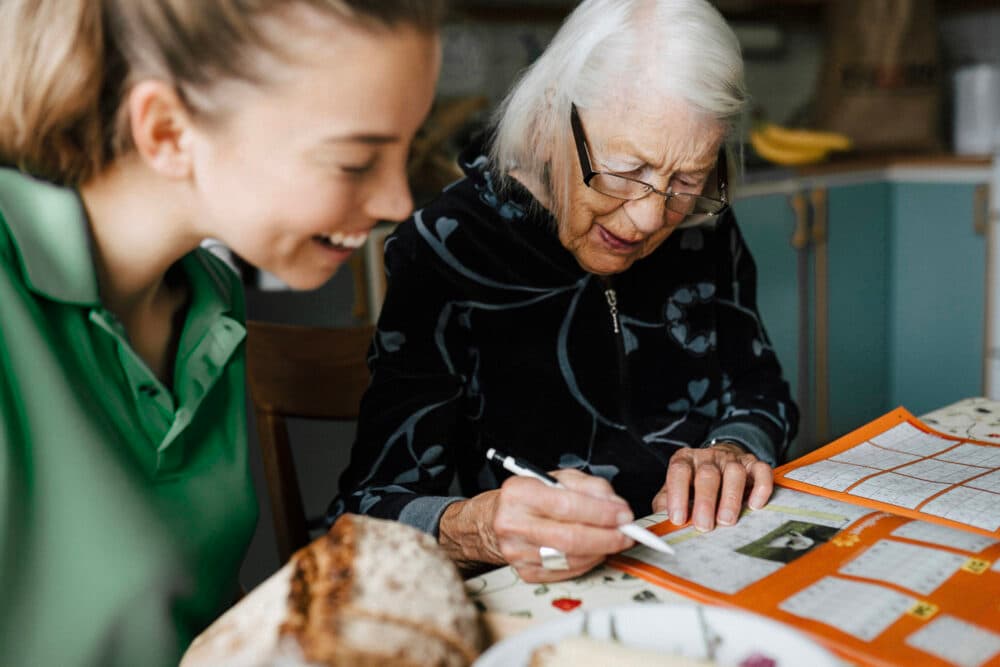
Final Thoughts
Caring for someone with dementia is a journey filled with challenges, but it is also a journey filled with love, patience, and meaningful moments. By reaching out for support, taking practical steps at home, and safeguarding your own wellbeing, you can make a real difference — for your loved one and for yourself.
At Home Instead Bedford, we are here to stand with you, offering compassionate, personalised care and unwavering support throughout every stage of dementia. You are not alone.

Areas We Serve
Bedford, Biddenham, Great Denham, Queen’s Park, Brickhill, Clapham, Renhold, Kempston, Wixams , Cranfield, Marston Moretaine, Wootton, Bolnhurst, Colmworth, Keysoe, Melchbourne, Thurleigh, Ampthill, Clophill, Flitwick, Silsoe, Shefford, Campton, Chicksands, Meppershall
MK40 1, MK40 2, MK40 3, MK40 4, MK41 0, MK41 6, MK41 7, MK41 8, MK41 9, MK42 0, MK42 6, MK42 7, MK42 8, MK42 9, MK43 0, MK43 8, MK43 9, MK44 2, MK44 3, MK45 2, MK45 3, SG17 5
106A Bedford Rd, Wootton, Bedford MK43 9JB, UK
01234 677693